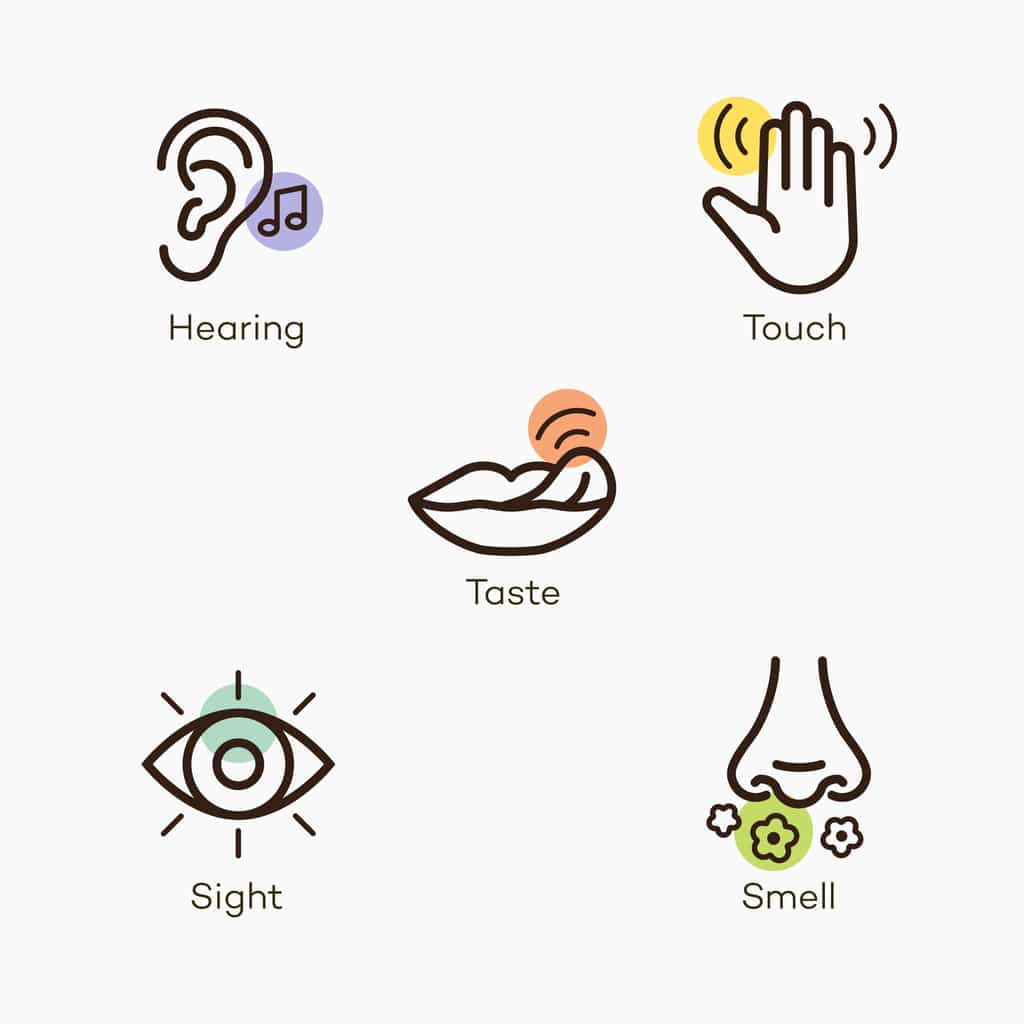You may have heard that if you lose one of your five senses, the others will become sharper. Unfortunately, like many things, this is not as simple as it sounds. In this post, we review how exactly hearing impacts other senses.
Hearing Loss Changes the Brain

One 2015 study conducted by the University of Colorado’s Department of Speech, Language and Hearing Science examined how hearing loss changes the brain and what the implications of these changes are.
Participants included children and adults who had varying degrees of hearing loss, from mild to severe.
For the experiment, sensors were placed on each participant’s scalp so that the researchers could monitor their brain’s responses to sound stimulation. Next, the researchers compared how the brains of people with hearing loss functioned to those with normal hearing.
The results showed that, among those with hearing loss, the areas of their brains responsible for other senses, like vision and touch, took over the centers of the brain dedicated to hearing.
According to the researchers, “The areas of the brain responsible for processing vision or touch can recruit areas in which hearing is normally processed, but which receive little or no stimulation in deafness. This is called “cross-modal” cortical reorganization and reflects a fundamental property of the brain to compensate in response to its environment.”
The Implications of this Research
While it may sound that cross-modal cortical reorganization is a good thing, there are some negative implications. Namely, the brain’s compensatory solution can cause the areas of the brain that are dedicated to higher-level thinking to take over the weaker areas, rendering them unable to perform their primary function.
There Is Hope
Because the brain begins to reorganize itself even in the earliest stages of hearing loss, it’s important to seek treatment right away. This means as soon as you start showing symptoms, like experiencing trouble hearing in settings with a lot of background noise.
According to another study, “Beyond the known benefits of hearing aid use on communication, outcomes from this study provide evidence that clinical intervention with well-fit amplification may promote more typical cortical organization and functioning and provide cognitive benefit.”
For more information or to schedule an appointment for a custom hearing loss treatment plan, call Nelson Hearing Clinics today.